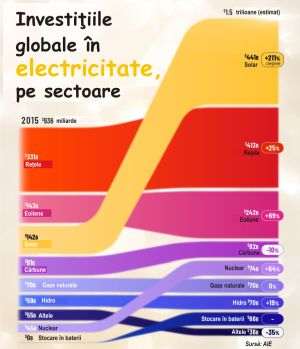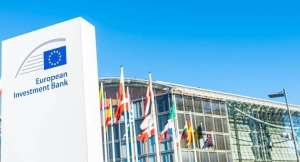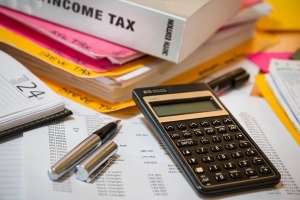The intense debates in the Industries Commission of the Chamber of Deputies, about Government Emergency Ordinance 64/2016 concerning the liberalization of the natural gas market did not yield any results, because the Ministry of Energy thought that there are no technical arguments for Romania postponing that process again.
As a result, the Ministry announced that the liberalization of the price of domestically produced natural gas will come into effect starting on April 1st.
Essentially, this will be a semi-liberalization, because the Energy Ministry officials said that starting Saturday, the liberalization will apply strictly to the purchase price for natural gas, which represents only one element of the final price paid by the household consumers, together with the transport, distribution, provision and storage tariffs that are part of the final bill paid by the end users. These elements are supplemented, however, by the excises, overtaxation and VAT, which together account for one third of the final price paid by consumers.
Energy minister Toma Petcu recently said that the liberalization of the price of natural gas would be done in two steps: the market between producers and suppliers will be liberalized this year, and the next stage of the liberalization of prices between suppliers and household customers, would end in 2021. He claimed that, following the analyses of the ANRE, by the end of the year, the final price of natural gas for the population could increase by at most 8.5%.
On Thursday, the Energy minister reiterated that the concerns over a substantial increase in the price of natural gas paid by the population following the liberalization are unjustified.
"The population will be protected until June 30, 2021 through end user prices regulated by the National Energy Regulatory Authority. Another advantage would be that after April 1st, 2017, the trading of natural gas will be done under circumstances of economic efficiency, through a transparent acquisition process that will allow all participants indiscriminate access to the market", Toma Petcu said.
Three days ago, the president of the National Authority for the Regulation of Energy (ANRE), Niculae Havrileţ, said that starting on April 1st, the final price for household consumers may increase by 1-2%, following the liberalization of the price of domestically produced natural gas, according to Agerpres.
The Energy Regulatory Committee approved in Thursday's meeting the prices for the regulated provision of natural gas for the 38 natural gas providers, and the adjustment for household customers will be about 2%, starting with April 1st, 2017.
"Even if the domestic natural gas production gets liberalized, the ANRE still has the obligation to set regulated prices for household consumers, and thus, to monitor the evolution of the competitive natural gas market", the ANRE states in a press release.
Any household customer currently has the option to stay in the regulated market - where natural gas will be supplied based on framework-agreements of regulated provision and at a regulated price, both set by the ANRE, or to move to the competitive market - where the supplier sells natural gas to the end customer at the price and under the terms agreed with the supplier, through negotiation or, as the case may be, at the price and under the terms set through the standard offer that the end customer in question opted for, according to the ANRE.
The Energy Ministry said on Thursday that it has not identified arguments that would support postponing the liberalization, while, on the other hand a series of risks exist. "I am first of all referring to the takeover by the European Commission of the procedure by which the Romanian state can incur European fines, as well as the loss of over 180 million Euros for the BRUA interconnection, which is so needed for Romania's gas supply", said Energy minister Toma Petcu.
According to some sources in Brussels, the European Commission had agreed to a three-month postponement of the liberalization.
• Liberalization, but with the taxes still in place
Politicians and state institutions are lying, perpetuating the idea that the regulation of the price of natural gas is done in order to keep prices low for the benefit of citizens, Gabriel Dumitraşcu the former head of the privatization department of the Ministry of Energy said recently.
He says that he thought that the Government opposed the liberalization of the market because that would also imply foregoing the overtaxation of the additional revenues obtained through liberalization, which concerns producers and suppliers of natural gas, which would result in a loss of state budget revenues of over 850 million lei a year.
But even though it is going ahead with the liberalization of the natural gas starting with April 1st, the Government wants to keep the tax on additional revenues earned through the deregulation of natural gas prices (60%, currently), according to a draft emergency ordinance, posted on the website of the Finance Ministry.
The Emergency Ordinance draft was passed on Thursday in a Government meeting.
According to the argumentation note, the passing of the law is caused by the need to maintain the budget earnings stemming from the taxes on supplemental revenues earned following the deregulation of prices in the natural gas sector.
The government intends to change the term that refers to the regulated price in the formula used to calculate the tax, with a reference to the price realized on the centralized, competitive market - namely the median weighted price of natural gas produced domestically pertaining to the volumes sold on the centralized/competitive market for household consumers.
Market voices claim that it is unclear how the median weighted price is set and by whom.
The ordinance draft was not included on Thursday on the official agenda of the Government meeting, but was instead included in the additional drafts put up for discussion.
































































